To read the policy update in full with all the accompanying charts please click here, or continue reading below for the text only version.
The build up to A level results day and clearing has dominated this week, amid much talk of the future of technical and vocational education.
Admissions and Clearing
National Picture
HEPI provide a guest blog by Mary Curnock Cook (previous Chief Executive of UCAS).
The blog notes that higher tariff institutions have benefited most from the buyers’ market this year.
Mary describes the increase in disadvantaged students in detail:
Things also look good for more disadvantaged students, measured by the serviceable but imperfect area-based POLAR4 measure.
Here we see that participation rates for POLAR Quintile 1 (roughly the fifth of the population living in areas having the lowest participation rates in higher education) has again grown, up 0.3% to 16.4%.
Quintile 5, from the highest participation areas, is also up by 0.7%.
The most advantaged (Quintile 5) are still 2.4 times more likely to enter higher education than the least advantaged (Quintile 1).
On ethnicity Mary writes:
Although white students are still the largest group of undergraduate students, BAME students have a higher and faster growing appetite for higher education. Today’s data from UCAS indicate that while the number of placed white students from the UK is down 3%, placed BAME students are up 1%. The entry rate by ethnic group is the lowest for the White group and Asian students are 15% more likely to enter higher education.
Mary’s analysis is based on A level results day data which captures 80% of the End of Cycle data, it cannot be fully comprehensive but is sufficient to indicate trends.
Education Secretary of State Congratulatory Speech
Damian Hinds congratulated A level students on results day and welcomed record numbers of 18 year olds who intend to enter university study. The Government’s news story provides a national picture of the A level results:
- Maths continues to be the most popular subject at A Level, with the number of entries up 2.5% on last year – up 26.8% compared to 2010;
- Entries into STEM subjects continue to rise, up 3.4% on last year and up 24% since 2010;
- An increase in entries to STEM A Levels by girls, up 5.5% from last year and 26.9% since 2010 [see this Financial Times article for a chart illustrating female STEM study programmes];
- The proportion of entries to art and design, music and modern foreign languages remains broadly stable;
- In the second year of reformed A Levels, the percentage of UK entries awarded the A* grade remains stable at 8.0% this year, compared with 8.1% in 2010 and the overall UK pass rate remains stable at 97.6%, compared to 97.9% last year.
Damian stated that the reforms to A levels mean students are better prepared for future study or the workplace and reiterated messaging around choice of progression pathway on from A level study:
We’ve worked to improve education for every child – from their early years through to secondary school and beyond. I also want young people to have wider choice, whether that’s going to university, earning through an apprenticeship or in future taking technical qualifications that match the best in the world…As young people receive their results and prepare for the next steps, for the first time National Careers Service advisers will be giving young people information, advice and guidance on skills, learning and work alongside the UCAS clearing service. This will help ensure young people are aware of all the education and training options available to them.
Sam Gyimah said:
Thanks to the support offered by this government, no student with the talent and potential is restricted from studying in our world-class university sector. We have worked with employers to design new high quality apprenticeships – including degree apprenticeships – making them longer, with more off-the-job training and proper assessment at the end so that apprentices are learning the skills that industry really needs.
Wider sector perspectives
CBI Head of Education, John Cope, spoke ahead of the results stating:
There are many great routes to a successful career whether that’s at a university, college, or learning on the job. It’s important that those getting their A-Level results consider the whole range of options available.
University absolutely offers students a great next step but is by no means the only route to a higher-level education. There are a range of different options – a Higher National Certificate or Diploma, a foundation degree, or a ‘degree apprenticeship’, with an apprenticeship offering the chance to gain both a qualification employers value and start earning a salary straight away.
He went on to talk about the rise in the number of unconditional offers:
What’s driving the growth of unconditional offers is complex. To protect the credibility of our world-class sector, universities must ensure that unconditional offers are used carefully, such as helping widen access to university and driving social justice
The Chartered Management Institute’s statement also cites the growing favour for degree apprenticeships quoting a parent survey which found half (49%) of respondents said they would encourage their child to start a degree apprenticeship rather than an academic-only university course. 52% of parents said they were put off the traditional academic route by substantial university costs. In addition, 71% of those surveyed believed degree apprenticeships provide a better chance of getting a job than a traditional university degree, with many considering them to be the best value-for-money option for young people currently. (Note, CMI partners with 12 universities and major corporates to deliver a degree apprenticeship offer.)
Meanwhile the Careers and Enterprise Company have published the myth-busting truth about life after A levels (full report here).
Times Higher report that UK student acceptances are down by 2% on A level results day with lower-tariff institutions continuing to feel the squeeze.
Headlines:
- The number of placed applicants for nursing continued to drop – down another 2% from last year.
- There has been a small rise in the percentage of students from the most disadvantaged groups accepted to universities.
- There was also an increase in EU acceptances (up by 1%) plus a record 31,510 international (non-EU) students.
Nationally, there were 26,000 unfilled places on A level results day
Research Professional published comments from the University and Colleges Union who have refreshed a pitch from earlier this year calling for a post-qualifications admission system. The article also reiterates familiar themes on Government’s concern over the rise of unconditional offers.
The Guardian ran a piece highlighting that some students who missed their grades and had entered Clearing to obtain an alternative university place may need additional support to adjust.
Times Higher pull together statements from key HE sector figures in response to A level results and early UCAS acceptance data.
University – declining as the ‘default’ choice?
The Sutton Trust has published research on young people’s attitudes to university across a 16 year period, conducted by Ipsos MORI. School pupils indicated how likely they were to attend university compared to the previous responses for the last 15 years. Overall figures fluctuate slightly and in 2018 more pupils indicated they were fairly likely to go, but less were certain enough to select ‘very likely’. Delving into the reasons why pupils were unlikely to attend HE all the major reasons were scored lower than in previous years (period 2013-2017), except for social concerns (friends not attending, teachers advised something else for me, people like me are not expected to go to university) which remains turbulent. See the Sutton Trust news article and report overview for more analysis of the data.
(See link for the tables, chart and Twitter snapshots)
The Guardian reported on the research in: Young people ‘more sceptical about value of university’ – poll
Economics of Post-School Education
The House of Lords Economic Affairs Committee undertook an inquiry into the Economics of Post-School Education, publishing their concluding report on 11 June 2018. You can read a summary of it in our previous policy update (pages 3 to 5). The Committee report called for immediate reform stating there was too much emphasis on university degrees, with undergraduate study dominating post-school choices, which isn’t in the country’s best interest. Their report attributes this dominance to the ‘lack of alternative viable, consistent and quality alternatives’ with the guaranteed HE Finance system and the removal of the student number cap acting as enablers.
This week the Government published their official response to the House of Lord’s report. The response continuously acknowledges the current Government Review of Post-18 Education and Funding throughout the replies to the Lords Committee’s calls for change. In general the Government’s response echoes the Lords sentiment for better post-school careers options and alternative technical routes with equal recognition as a degree. This is unsurprising as these are both current policy pushes and set within the context of the reform of technical education which aims to span FE and HE. As expected the Government’s response focuses on pathways to employment, provides a nod to automation, and emphasises all forms of education as a driver of social mobility. However, it disagrees with the Committee’s calls to revisit student finance. In the full response the Government references the Review of Post-18 Education and Funding at the end of each reply –the effect is to set out a firm policy position but allowing room for future manoeuvre.
The key recommendations of the Lords inquiry report are set out below with the Government’s response in blue beneath.
- Sector rhetoric has long held FE to be the poor cousin of HE and the Lords report called for better distribution of public funding across FE and HE with separate single regulators for level 4 and above (OfS) and sub level 3, including apprenticeships.
- The Government response notes the DfE review of classroom-based, level 4 & 5 technical education launched in October 2017 (interim findings here) which it states is ensuring that learners have high quality, accessible and attractive study choices at Levels 4 and 5. The response doesn’t comment on the funding aspect deferring an answer until after the Post-18 Review concludes: Access to loan funding and maintenance support for all courses at Level 4 and above including wider funding for FE colleges will be considered as part of the Review of Post 18 Education and Funding.
- On single regulators the Government confirms the role of the OfS as the HE regulator, only for those on the HE register, but with a wider student focussed outlook: In his strategic guidance letter 2018/19, the Minister for Universities asked the OfS to ‘look beyond its register, develop an understanding of providers and students in the currently unregulated parts of the HE sector and consider ways of encouraging such providers to register and engage with good regulatory practice.’
- Address the decline in part-time and mature students by removing loan restrictions and maintenance support, by introducing innovative methods of learning, working with employers, and cooperation between universities to ensure a flexible credit-based modular system where individuals can learn at their own pace.
- The Government response noted the changes already introduced aiming to support part-time and mature students, including the 2018/19 starter part-time maintenance loans, and the Masters and Doctoral loans. The push for accelerated degrees, with the revised finance arrangements to facilitate this (outcome of consultation on this due autumn 2018), and greater ease and transparency for students wishing to transfer credit between institutions were characteristics of Jo Johnson’s stint as HE Minster. While the Government has been quieter on these aspects under Gyimah the impetus for a system that incentivises student choice remains and the Government’s response describes on-going government work to empower people to study at different times in their lives and sets out their commitment to the value of innovative methods of provision as a means of broadening choice available to students. One of which is the growth of new and alternative providers to plug cold spots and increase competition. The feel behind the response is that the Government is genuinely committed to reversing the dearth of mature and part time students and are looking to universities to collaborate, attract, innovate and offer sufficient flexibility to reinvigorate this group of learners to return to HE study, whether they chose a traditional academic programme or follow a higher level technical or employer focussed route.
- Specifically on credit transfer systems the response highlights that the Higher Education and Research Act tasks OfS to monitor and report on the availability and utilisation of student transfer arrangements, and confers on the OfS the power to ‘facilitate, encourage, or promote awareness of’ the provision of transfer arrangements’ whilst recognising the autonomy of HE providers in England to determine the content of particular courses and the criteria for the admission of those courses. It also notes that from August 2019 the OfS will require all registered HE providers to publish information about their arrangements for student transfer.
- Refresh apprenticeships – remove targets to prioritise quality over quantity, focus on the skills employers really need, abolish the Institute for Apprenticeships, increase the status of apprenticeships to be seen as a valid and worthwhile alternative to a degree
- The Government response sets apprenticeships within the wider policy vision of a refreshed, high-quality, economically productive technical education and training pathway that delivers the cutting edge skills employers need. Including T levels and the 15 new technical routes, the National Retraining Scheme, Institutes of Technology, National Colleges, the role of Skills Advisory Panels in supporting local skills needs and business growth, and emphasising student mobility across all academic and technical routes and levels. The response also noted the Government wanted to have a positive impact on the progression and earning potential for apprentices over their lifetimes.
- The Government confirmed their aspiration for the technical route to have equal status and validity to an academic degree route and cited the introduction and continued growth of degree apprenticeships within the sector:
The development of degree level apprenticeships aims to widen access to the professions and develop the higher-level technical skills needed to improve productivity and make sure businesses compete internationally. Not all occupations will lend themselves to a Degree Apprenticeship and not all people will want to work whilst doing their degree. Sitting alongside… Degree Apprenticeships provide another route for employers and people to gain the skills that they need.
- The Government’s response acknowledged the poor quality within current apprenticeship provision: we agree with the Committee that for too long apprentices have not received the quality of training we would expect. Yet resisted the Lords calls to abolish the Institute for Apprenticeships, instead stating the Government has given the Institute for Apprenticeships a clear remit.
- Alternative viable non-degree routes with parity of esteem – moving away from university undergraduate study as the default post-18 choice. The Lords also recommended a simpler approach to post-school choices through a single UCAS-style portal covering all forms of higher education, further education and apprenticeships.
- The Government shares the Lords’ vision for alternative non-degree routes as set out under 1a, 2a, 2b, 3a and 3b above.
- With regard to redressing university study as the default choice the Government response acknowledges more could be done to improve information on post-18 options provided in schools and references the Careers Strategy. There is a statutory duty on schools to provide independent and impartial careers guidance on the full range of education and training options, including apprenticeships, and provide pupils with access to the full range of training providers. The Careers strategy also sets out a requirement for schools to facilitate a number of employer encounters for pupils. However, they resisted the Lords call for a single UCAS style entry system:
We agree that it is important that students have the necessary information to consider all of their options, not just the academic route. We are making sure that all Government careers information is available in one place on a new National Careers Service website. Online resources will include information on routes into apprenticeships, including higher and Degree Apprenticeships, and T Levels. We are improving the functionality of the post-16 course directory. This provides information about all the courses that a young person might choose at 16..We will consider what further action might be helpful in ensuring that young people are able to make informed decisions about their education, training or career options.
We have considered whether apprenticeships should be included in a centralised application system (either at age 16+ or at 18+). Our discussions with employers have made it clear that they value having their own recruitment processes and so would not welcome an attempt to standardise the process.
The Review of Post-18 Education and Funding is considering how we can help young people make effective choices between academic, technical and vocational routes after the age of 18.
Again the task of implementing this aspect of the Careers Strategy falls upon OfS shoulders:
The provision of information is one of the OfS’s top priorities. The strategic guidance letter asked the OfS to play a key role in ensuring better information, advice and guidance is provided to students so that they can make the right choices for them. The Government expect the OfS to combine this with the Longitudinal Education Outcomes (LEO) data on salary outcomes and to reform Unistats, whilst working with students to identify what information they need to make effective informed choices and how to present it most effectively. The OfS are expected to publish an information, advice and guidance strategy by Autumn 2018.
- Structural changes including addressing the high level of interest charged on student loans, criticism of the removal of maintenance grants, and censure for the masking effects in the way the student loan book is calculated and reported
- The Government rejected the recommendations surrounding the student finance system. The response notes that cutting the interest rates would be socially regressive as it would primarily benefit the highest earning graduates. This runs counter to Government policy, the introduction of the 2012 higher fees and cessation of student maintenance grants, which states that students who benefit financially should pay for their degree rather than the public. However, there is a slight softening within the Government’s response which references the Review and states [we] will consider the report of the independent panel in this regard.
- On maintenance support the response defends the Government’s position stating the move from grants to loans ensures that students contribute to the cost of HE – creating a fair balance of contribution between those who benefit – society and the student. It reiterates the familiar messaging which establishes the non-repayment of loans as a deliberate and conscious investment subsidy in the long-term skills capacity of the economy. Again there is a softening in the now familiar final statement on the Review which provides room for manoeuvre in future policy direction: The Review of Post-18 Education and Funding is considering how disadvantaged students and learners receive maintenance support, both from Government and from universities and colleges.
- The Director General of the Office for National Statistics also writes to Lord Forsyth (Chair of Lords Economic Affairs Committee) to respond to the Committee’s recommendation on the way the Office for National Statistics (ONS) accounts for the loan deficit. The letter acknowledges the complexity of the current accounting method and references the ONS’ own review tackling the pros and cons of the various alternative options in calculating the deficit.
Research Professional report on the student finance elements of the Government’s response in: Department rejects interest rate cuts for student loans.
Finally, while the majority of the Government’s official response to the House of Lords inquiry report holds to the current familiar policy lines it consistently acknowledges the importance of the Post-18 Education and Finance Review, including the role of the independent expert panel (chaired by Philip Augar). Perhaps portending movement on some of the key HE issues, such as finance, alongside a shake-up of sub level 4 provision. The independent panel is due to report later in autumn 2018 with the Government concluding the full Review early 2019. Potentially the Review could mean the biggest change in the sector landscape since the Higher Education and Research Act, and all set against the backdrop of impending Brexit.
Parental role in funding university
This week also brought an upsurge of articles on funding the costs of university timed ahead of the A level results.
Times Higher ran: Parents worldwide contribute to the cost of university, finds survey. It compares the differing levels of finance parents provide to facilitate their child’s degree study – UK and French parents contribute the least worldwide. The article also considers variety in global parental opinion on which skills are most important for their children to learn at university.
The Association of Investment Companies ran the article: A-Level results day approaches and parents vastly underestimate student debt.
Educating the world’s leaders
HEPI, Times Higher and Research Professional cover the news that America has overtaken the UK in the statistics which recognise the country who educates the most world leaders. America has educated one more serving monarch, president or prime minister than the UK to take the top spot. Nick Hillman (HEPI) states:
You build up incredible soft power if you educate the leading lights of other countries. In the past, we have been more successful than any other country in attracting the world’s future leaders. But these new figures suggest our position could be slipping. To ensure this does not become a long-term trend, we need to adopt a bold educational exports strategy, remove students from the main migration target and roll out the red carpet when people come to study here.
One practical way to make all that happen would be to end the Home Office having complete control over student migration and to share it across government departments instead, as they do in other countries.
Technical Education
The Conservative leaning Centre for Policy Studies has published Technically Gifted – How Selection Can Save Technical and Vocational Education. It makes bold suggestions on how to achieve parity of esteem for technical and vocational education through exclusive selection methods. The document’s authors are no strangers to controversial headlines. It is written by Toby Young, the Free Schools guru who resigned from the OfS Board within days of appointment following public outcry at his past inappropriate tweets; with the Foreword by Nick Timothy, Theresa May’s ex-special advisor and Chief of Staff who advised her to call the snap election in 2017 which left the Conservatives without a majority in Parliament.
Toby highlights the growing skills gap in Britain – by 2022 it is anticipated there will be 3.6 million vacancies in skilled technical occupations despite the Government’s technical education policy agenda. He notes that, with a few exceptions, University Technical Colleges, Studio Schools and Free Schools have all failed to thrive and achieve quality outcomes. Toby believes the difficulty lies in student recruitment numbers – for viability the providers accept all applicants including those marginalised or excluded from other local schools and often have higher numbers of pupils with behavioural difficulties or low attainment. This makes the institution unattractive for pupils who excel within the educational specialism the institution provides, creating a negative downward spiral of declining numbers and status.
The document lands at a time when the Government and Lords are striving to engender a culture of parity of esteem between technical and academic education, where a higher level technical or vocational qualification is considered of equal value to a degree. The Government has invested heavily and is introducing T levels reforming vocational education into the 15 new technical routes, and promoting degree apprenticeships; focusing more on choice for young people and promoting technical and vocational options through the Careers Strategy and the National Retraining Scheme; continuing to provide new funding to invest in Institutes of Technology and the National Colleges; whilst maintaining their support for the Institute for Apprenticeships. The quality and status of vocational education has been an issue throughout successive Governments so it remains to be seen whether the new approach will successfully bring the economic and skill benefits that Britain needs. What has been noticeable in the run up to A level results day this year is the additional volume of media stories and promotions espousing the benefits of degree apprenticeships and alternative choices.
For Toby the answer to both of the above conundrums – high quality technical education and equal status to an academic route – lies within exclusivity through selection. He believes being selected for a technical institution should be a high status achievement (like passing the 11-plus for grammar school entry) rather than a negative decision because the pupil is unsuitable for a standard academic route.
Toby writes:
…if the Government wants England’s technical/vocational schools to survive and thrive, it must cut the Gordian Knot linking technical and vocational education to a lack of aptitude for academic subjects and allow these schools to select pupils according to aptitude for their particular specialisms at the age of 14. Not only would this transform the fortunes of these schools, it would also enable the Department for Education (DfE) to set up new 14-19 technical/vocational schools that would be likely to succeed….This would not require any amendment to primary or secondary legislation. A policy change by the Secretary of State for Education would suffice…. Above all, it would fundamentally improve the life chances, income and well-being of those who have an aptitude for this type of education and would like the opportunity to pursue it, rather than treating them – as we have done for so long – like second-class citizens… Members of the professional class, including headteachers, must stop thinking of this type of education as second best – as only being appropriate for ‘other people’s children’.
Toby goes on to argue that:
- technical courses should be as intellectually rigorous as academic subjects, including a common core of academic GCSEs
- specialist schools should commence at age 14 as technical aptitude cannot be measured at age 11; children need time to develop the cognitive skills required by such courses. Moreover the pupils need an interest and passion in the specialist technical area they will study – this comes through experience and maturity
- technical education should be delivered in specialist schools, not mainstreamed. The requirement for schools to enter 75% of their pupils for the narrowed subject mix of the English Baccalaureate (90% by 2025) means the wider range of subjects needed for vocational education aren’t being delivered
- Technical education has to start pre-GCSE. He believes the post GCSE T levels will be a bolt on and won’t work because of the prior standard academic content with its narrowing mix of subjects. He calls again for the Government to signal that it regards this type of education as suitable for children of all abilities, not just those who find themselves without the necessary qualifications to do three A-levels
- Toby notes a school admitting children at age 14 does pose a difficulty because it is not a standard transfer point in England’s schools system. Parents are reluctant to move children who have already settled and established friendships away from their current secondary school, and the middle school system moves children on at the end of year 8 not year 9. Furthermore, secondary head teachers have a financial incentive to retain their current pupil roll. In particular they are motivated to avoid additional funding cuts on top of those expected from pupils leaving to pursue post-16 options elsewhere. Toby highlights that persuading the local multi-academy trust to run a technical school is a potential solution, even better if they worked in partnership with local industry.
- Selection methods should be commensurate with the type of specialist education delivered (e.g. the one day workshop style auditions common to the BRIT school) measuring interest/passion and technical aptitude rather than standard intelligence testing.
- Currently there are two successful selective specialist technical schools. Through these Toby highlights that exclusivity doesn’t run counter to social mobility. In these schools both have significantly higher levels of pupils previously eligible for free school meals – 15% and 29% respectively compared to the 7% national average.
- Abroad, nearly every country that has rolled out successful technical/vocational schools has allowed those schools to select.
Nick Timothy’s supports Toby’s proposals, writing in the foreword:
Young has identified why schools providing technical education have struggled in England: too often a pupil’s suitability for technical education is judged by their lack of suitability for an academically rigorous alternative. This is a false choice, and it inevitably means technical education is treated as second best. As a result parents and pupils shun technical schools, which end up being treated as dumping grounds for unruly students who are unwanted elsewhere. If we want to become world leaders in the STEM fields and meet our skills shortages with homegrown talent, this has to change. Young people should be encouraged to study technical subjects, and not only when teachers judge that they are not equipped for a purely academic education. For that to happen, a new generation of prestigious schools – selecting their pupils by aptitude, specialising in technical subjects, and still offering a core of academic subjects – can lead the way.
Graham Brady MP writes in Conservative Home in support of selective technical schools:
Wouldn’t it be better, as Young argues, if these schools were able to select those students with a particular aptitude for their specialisms? This should be the starting point in the Government’s efforts to revitalise technical and vocational education – a journey that leads to T-levels (which include a mandatory work placement), a place at an Institute of Technology, before entering a skilled occupation.
The choice, in other words, is not between grammars and comprehensives. It is between a flourishing ecosystem of schools, both selective and not, which do the best possible job of matching pupils and education – and a one-size-fits-all model which is increasingly out of step with the modern world.
Level 4 & 5 Qualifications
On Tuesday the DfE published findings from its ongoing review of level 4 and 5 qualifications. These shorter qualifications such as Foundation Degrees and diplomas are lower than the full undergraduate degree at level 6. However, the Government believes they are becoming a more important part of the employer skills jigsaw and pursuing them will lead to a healthy salary. The initial findings from the review note:
- Studying at this level can increase earning potential and employability – students achieving a Level 4 or 5 qualification by age 23 had higher median wages by the time they were 26 and were more likely to be in sustained employment than students who achieved a Level 3.
- A growing demand for qualifications at this level from employers in key sectors such as ICT and Engineering – meaning increased take up could play an important role in the UK economy, helping to plug technical skills gap and boost productivity.
- Learners at this level often study part-time, and come from diverse backgrounds – highlighting how studying at this level could boost learning and job opportunities for hundreds of thousands more people across the country.
However, only 7% of people in England aged between 18 and 65 are undertaking training at this level, with the majority ceasing study at level 3 or instead pursuing a full degree. These latest findings fit with the Government’s call on the HE sector to offer a wider range of study options and structural flexibility to appeal to a wider audience –progressing social mobility and meeting the UK’s economic ambitions.
Apprenticeships and Skills Minister Anne Milton stated:
We want everyone to be able to access high quality technical education and training so they can get the skills they need. Having these skills can change people’s lives, leading to a rewarding career and fantastic opportunities. These early findings show how learning at Level 4 and 5 can benefit people of all ages and a wide variety of backgrounds, whilst helping employers get the skilled workforce they need. This research will play an important part of our ongoing review of Level 4 and 5 qualifications so we can understand how we can make education at this level work even better for everyone.
Research Professional report on the findings focusing on the low update of the level 4 and 5 qualifications.
Global Matters
This week the Government responded to a parliamentary question on visa delays which cause students to miss the start of their course:
Q – Stephen Kerr: How many tier 4 [visa] applications that have not been processed within the timescale set out in the service level agreement for processing such applications have caused students to miss university start dates in the latest academic for year for which figures are available.
A – Caroline Nokes: …The latest available data indicates the vast majority, 98.1% (and 99.8%) of straightforward cases were dealt with within service standards. Information on students who may have missed their university start date is not collated for publication on Home Office visa case-working systems.
International: The Pie News explores the popularity of UK HE delivered in Hong Kong, with 39 institutions delivering programmes. Pie News also reports that international students attending Chinese universities may be permitted to work part time in future to increase the attractiveness of the Chinese education system.
Brexit: On Friday the European Commission and the UK team continue to negotiate the future EU-UK relationship. Here is a helpful chart which sets out the UK and EU key players since the post Chequers cabinet reshuffle.
Buzzfeed News capitalises on a leaked listing of the Brexit technical papers in which the Government explore the consequences of leaving the EU on a ‘no deal’ basis. In part the papers aim to advise individuals and businesses on how to prepare for ‘no deal’ within their operating sphere. You can see the list of topics covered here, however, no content from the papers has been leaked. The list includes Erasmus, Horizon 2020, Broadcasting, Environmental Standards, EU citizens in the UK, Life Sciences and many more. Buzzfeed report that a Government spokesperson stated the Brexit technical papers will be published for all to see in August and September on www.gov.uk website.
Consultations
Click here to view the updated consultation tracker. Email us on policy@bournemouth.ac.uk if you’d like to contribute to any of the current consultations.
New consultations and inquiries this week:
Other news
Horizon 2020: The Financial Times explore the Horizon 2020 funding figures released last week questioning whether collaboration is the major Brexit concern and noting the stabilisation effect Horizon funding provides for researchers. Meanwhile this Government Horizon 2020 paper, issued last Thursday, explains the Withdrawal Agreement, the Underwrite and Post EU Exit Extension Guarantees, along with mobility and the Government’s position to Horizon Europe. It is written in plain language and an accessible catch up read.
Horizon Europe: Research Professional report on the Russell Group’s position paper which urges the EU to not seek to focus on closer-to-market projects at the expense of basic research.
Social Mobility Action: With the recent appointment of Dame Martina Milburn to lead the Social Mobility Commission comes a call to the public and industry to get involved with the social mobility movement for change. The news story is here, with a promise to update the page as more opportunities to get involved arise. It also contains details for interested colleagues to join their mailing list.
Masters fee hike: Times Higher report that since the postgraduate loans have been introduced many universities have increased the tuition fee for masters study.
Nursing: Nursing Times writes on the most recent NHS digital data showing the number of practicing learning disabilities nurses has dropped by 40% and that students choosing this form of nursing is decreasing. The article also references the Council of Deans for Health survey which found that 46% of education institutions considered dropping learning disability nursing from 2018/19 due to low student interest meaning courses are not financially viable. In this article the Royal College of Nursing (RCN) criticise the Government for doing too little too late – with the £10,000 golden hello for postgraduate students having little impact on recruitment. In this older news story RCN raise the removal of the NHS bursary for student nurses as a major factor in declining recruitment to degree programmes. It is likely that the decline in mature students contribute to the fall in numbers too. Mature students, with their greater life experience, are more likely to study learning disability or mental health nursing. The Independent also cover the recruitment drop warning of a return to Victorian era practices where patients are moved away from family to institutions because of insufficient trained expertise locally.
Justin Madders MP, Labour’s Shadow Health Minister, said:
“The Royal College of Nursing’s powerful warning must serve as an urgent wake up call to the new Health Secretary. Under this Government learning disability nurses have been cut to the bone, and they appear to have gone quiet on their plans to attract more students into the profession. This unprecedented workforce crisis is completely unacceptable.”
£9k fees unjustifiable: Times Higher report on a YouGov poll which found that although students are satisfied with the quality of their degree they don’t feel the fee level is justified or results in a sufficiently high graduate job pay off.
“The data shows that while students’ satisfaction with the quality of their degree teaching is very high and a large majority still expect to be better off financially and in terms of being able to find a good job, this seems to be in spite of the costs of tuition, which the majority consider unjustified.”
Contract cheating: Wonkhe have a new blog post on essay mills to accompany a forthcoming petition to Parliament to legislate against contract cheating.
Subscribe!
To subscribe to the weekly policy update simply email policy@bournemouth.ac.uk
JANE FORSTER | SARAH CARTER
Policy Advisor Policy & Public Affairs Officer
66724 65070
Follow: @PolicyBU on Twitter | policy@bournemouth.ac.uk

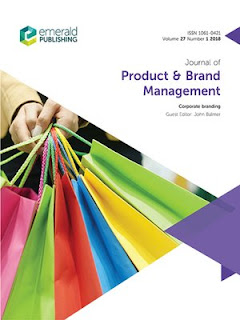




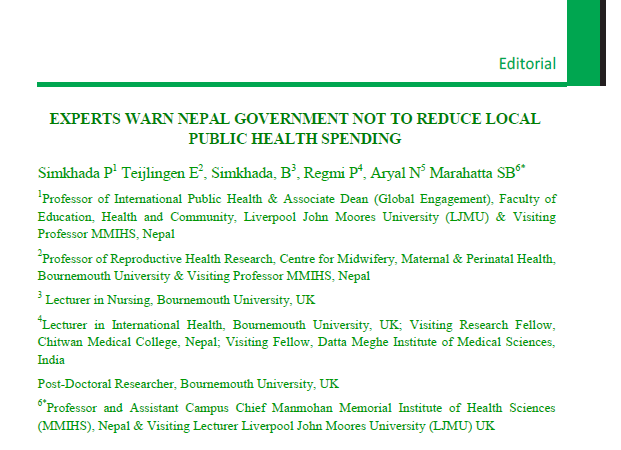

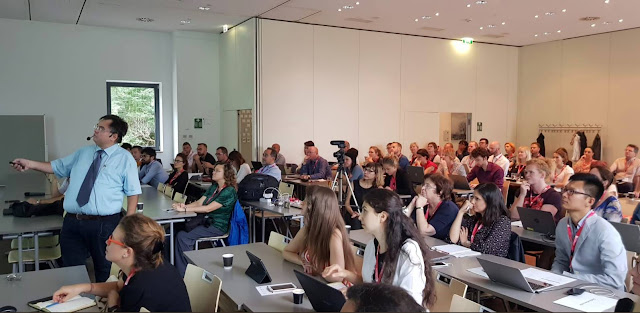




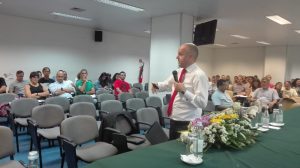 My presentation focused on ‘sports events and local and tourist development’. I explained the types of impacts brought about by sporting events, and highlighted some of the challenges in measuring them. I then argued that the traditional focus on economic and tourism impacts often overlooks other important impacts, such as effects on social capital. Using the example of the Festival Makers programme developed by BU academic Dr. Debbie Sadd, I demonstrated how volunteering can develop social capital and how some of the impacts continue to be visible well beyond the event. I concluded my presentation with some ideas about strategic directions for sports events in Madeira.
My presentation focused on ‘sports events and local and tourist development’. I explained the types of impacts brought about by sporting events, and highlighted some of the challenges in measuring them. I then argued that the traditional focus on economic and tourism impacts often overlooks other important impacts, such as effects on social capital. Using the example of the Festival Makers programme developed by BU academic Dr. Debbie Sadd, I demonstrated how volunteering can develop social capital and how some of the impacts continue to be visible well beyond the event. I concluded my presentation with some ideas about strategic directions for sports events in Madeira.

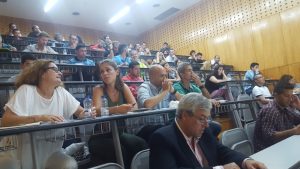

























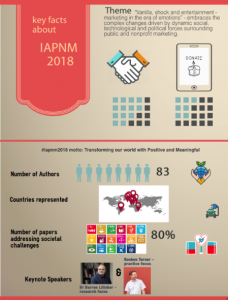
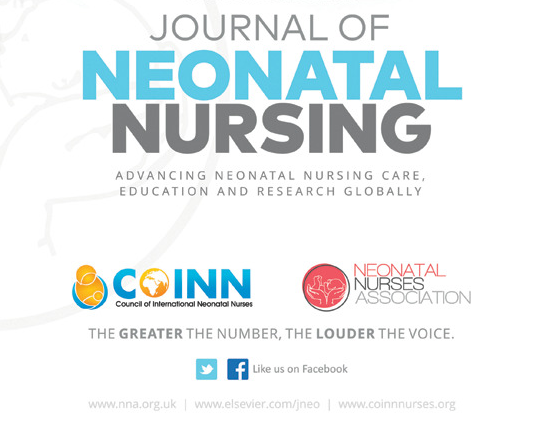











 FHSS academics teaching in Nepal
FHSS academics teaching in Nepal New weight change BU paper
New weight change BU paper One week to go! | The 16th Annual Postgraduate Research Conference
One week to go! | The 16th Annual Postgraduate Research Conference Geography and Environmental Studies academics – would you like to get more involved in preparing our next REF submission?
Geography and Environmental Studies academics – would you like to get more involved in preparing our next REF submission? Congratulations to three former BU staff
Congratulations to three former BU staff MSCA Staff Exchanges 2024 Call – internal deadline
MSCA Staff Exchanges 2024 Call – internal deadline Applications are now open for 2025 ESRC Postdoctoral Fellowships!
Applications are now open for 2025 ESRC Postdoctoral Fellowships! Horizon Europe – ERC CoG and MSCA SE webinars
Horizon Europe – ERC CoG and MSCA SE webinars MaGMap: Mass Grave Mapping
MaGMap: Mass Grave Mapping ERC grants – series of webinars
ERC grants – series of webinars